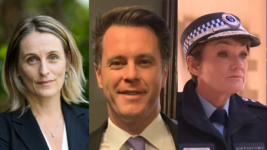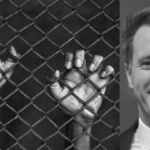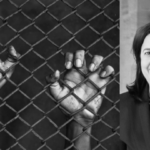“A Kick in the Guts”: Higginson on Minn’s “Retrograde” Crackdown on Youth Crime

The major parties are fast losing touch with their respective constituencies. And no matters reveal this more clearly at the federal level of late than the genocide in Gaza and the AUKUS submarine deal. But state governments are too failing on transparency, social equity and law enforcement.
NSW Labor’s new tough-on-youth-crime package is a case in point. It is an unnecessary solution to a politically manufactured issue, whereby the figures revealing the regional youth crime wave that the laws are predicated upon, weren’t released until a day after the bill facilitating these measures was.
Introduced on 12 March, the Bail and Crimes Amendment Bill 2024 contains two laws: one which ensures that youths aged 14 to 17 who reoffend on bail, will then have it revoked, whilst young people who post about the commission of their crimes on line, will be facing more time in gaol.
On spruiking this unexpected crackdown on youth crime, the premier further told the press, that he’s not going to raise the age of criminality from 10 to 14, as that’s not on NSW Labor’s agenda.
Rather, it would seem, that targeting young people for carceral punishment, especially First Nations youth, is NSW Labor’s focus.
The implications of this package, however, are readily apparent to those paying attention, and that’s why NSW Greens MLC Sue Higginson and lawyers from the Aboriginal Legal Service NSW/ACT held a press conference to reflect their general dismay over this reactionary development.
Indeed, Higginson was heard to remark that the new package was the work of “a cynic or a coward”.
Tired, prejudicial, harmful
“This type of legislation is dangerous, retrograde and should be consigned to the pile of bad ideas,” Higginson told Sydney Criminal Lawyers. “It is the view of the frontline experts who work in the field of youth justice.”
“We are sick to the core of fighting draconian law and order approaches that only make things worse in our communities, but this one is a kick in the guts, because it’s our vulnerable young people,” the NSW Greens spokesperson continued, “it’s First Nations young people.”
The development comes after Queensland Labor announced a similar crackdown on youth crime committed on bail in late 2022, and in May 2021, the Northern Territory Labor administration passed similar tough laws penalising youths that offend on bail in that jurisdiction.
Higginson explained that in Queensland the “harsh and draconian law and order” youth bail reforms required the suspension of the Human Rights Act 2019 (Qld). And the rights-violating law has since resulted in kids in overflowing holding cells, being exposed to “sexual assault and other trauma”.
“In NSW, we don’t yet have a human rights act, so that’s one justice hurdle the premier doesn’t have to straddle and trip himself up over, as he races to lock up kids to keep the conservative media happy, rather than doing what we need him to do, which is address the drivers of crime,” she added.
Lethal law enforcement
But while Labor drafters aren’t restrained by human rights in legislating, their new laws are designed to punish children in the way-off-the-mark hope that this somehow appeals to voters, especially as highly scrutinised NSW police officers will be charged with enforcing these laws against kids.
Concerns regarding law enforcement have taken many forms of late. Most recently it’s related to a senior constable having allegedly shot two gay men dead, and when the force was asked not to partake in the Mardi Gras parade as a sign of respect, it did all it could to see that reversed.
“NSW police is in crisis,” Higginson made clear. “Guns being checked out for murders, wrongful deaths of vulnerable people caused by on duty officers, and an ongoing system of proactive policing that is racially profiling First Nations people in disadvantaged communities.”
“Policing in NSW is broken, everyone knows it,” she further insisted. “But the government is afraid to talk about it because Chris Minns is beholden to talkback radio, just like the Coalition government was before him.”
Higginson discussed the unholy alliance fostered between the former NSW Coalition government and 2GB shockjocks with SCL in late 2022, and, as she described, it involves ministers on-air identifying a social problem, which results in then spruiking tough-on-crime law reform solutions.
Indeed, the unorthodox technique, which has been mirrored in other states, sees the radio presenter often being the individual that first cites the resulting law reform to the politician in conversation, apparently by chance.
“We need a proactive response to malpractice by the police that is literally killing people and destroying lives well beyond their immediate victims,” Higginson continued.
Prior to the recent alleged double homicide, NSW police had killed five people in mental health crisis since last May. These incidents involve officers being called on for assistance. And the first saw a 95-year-old woman with dementia, approaching an officer using a walking frame and a knife, killed.
But the recent murders perpetrated with the use of a NSW police-issued gun checked out over days, has triggered rare calls to disarm the police. And these are vital as many locals don’t know that a number of overseas jurisdictions have on-the-beat cops that don’t carry guns, including in the UK.
“There are models around the world that show police don’t need guns in general duties. They don’t need to be attending nonviolent incidents where health intervention is needed,” the Greens member continued.
“And they need a strong and independent oversight body that is resourced to actually investigate the many instances of wrongdoing that are reported.”
Law enforcement reform
The Baird government streamlined police oversight when it passed 2016 laws resulting in the mid-2017 roll out of the Law Enforcement Conduct Commission, which combined duties previously pursued by the Police Integrity Commission, the NSW Ombudsman and the NSW Crime Commission.
But the LECC has been underfunded since inception, and while it conducts as many police serious misconduct incident inquiries in terms of how it is resourced, the police force carries out its own police critical incident investigations, with the watchdog merely overseeing these.
And it’s believed that when the LECC got too gung-ho with its strip search investigation, it was then subdued.
Higginson has been calling on the Minns government to conduct a parliamentary inquiry into police use of force and weapons, since former senior constable Kristian White tasered 95-year-old Clare Nowland in her nursing home, causing the great-grandmother to fall and then later die in hospital.
“As long as the media landscape is dominated by racist and wealthy demagogues, the populist political parties of government will be vulnerable to their influence,” said Higginson, again explaining that it’s media players, like 2GB and Sky, calling for more tough-on-crime laws, not the constituency.
“Every time I have come close to the government standing up for progressive values,” she added, “it has been whipped away by the premier’s office for no greater reason than they don’t care enough about the issue to tackle it.”
The Sydney-based National Justice Project has vocally supported Higginson’s calls for an inquiry into police use of force.
The NJP is well aware of the issues, as it’s created the Copwatch app for the purpose of assisting First Nations youth in filming NSW police in order to prevent them from being harassed and abused by armed and uniformed adult officers.
Having to assist children in protecting themselves against police officers is an obvious sign that other law enforcement models must be considered.
Former NSW Council for Civil Liberties president Josh Pallas called for disarming police, during a rally welcoming the initial withdrawal of NSW police from Mardi Gras.
The lawyer underscored that if officers didn’t “have guns strapped to their waists”, they wouldn’t easily pull them out and shoot people.
Higginson declared that “as long as I am in this place, I will keep moving towards solutions that actually address the societal circumstances that drive crime and empower poor and violent police behaviour.”
“I genuinely believe, and I know I am in good and growing company, that the longest arc of justice is reform that will make police a genuine benefit to society,” she concluded. “We definitely aren’t there yet though.”







